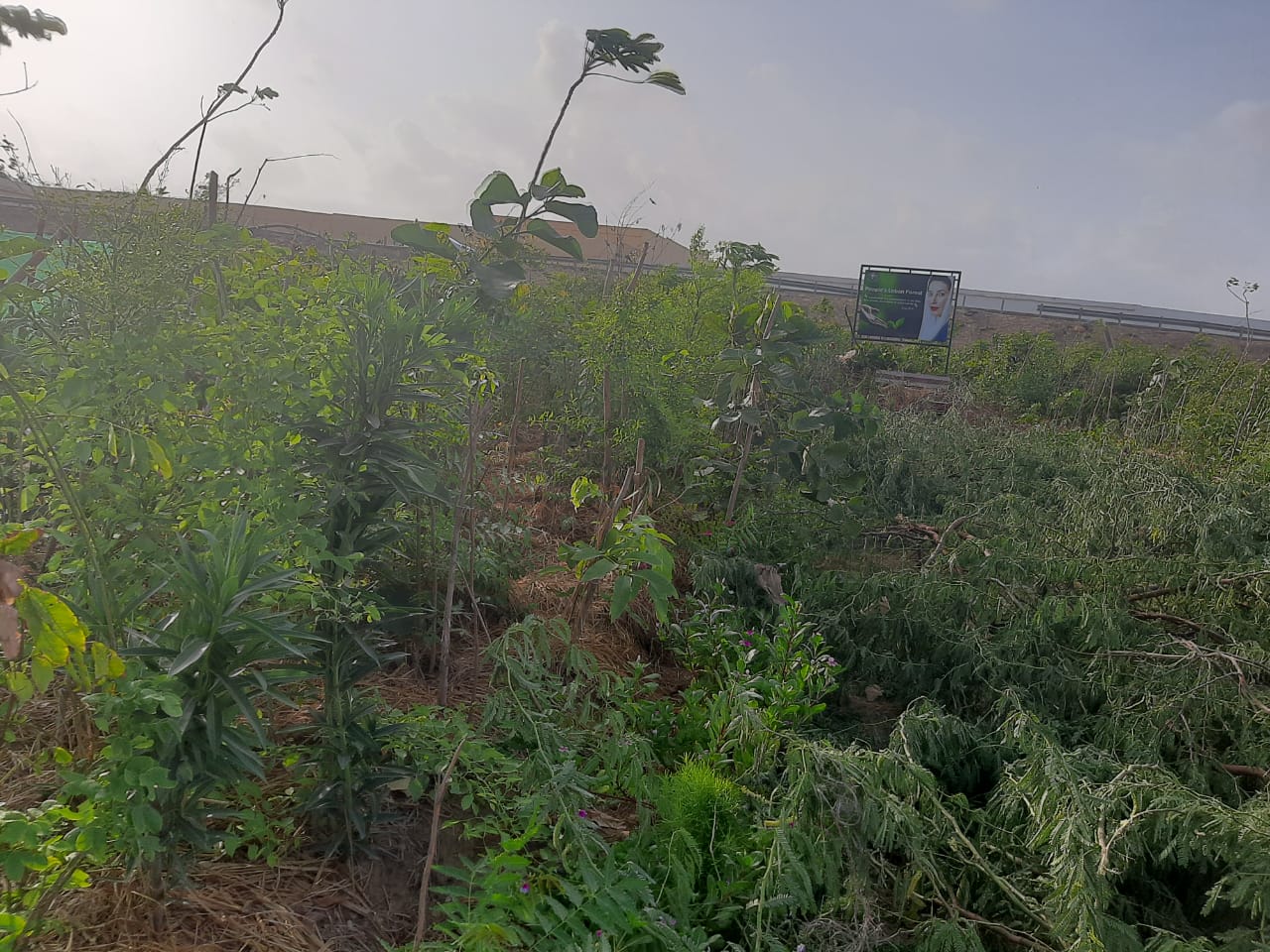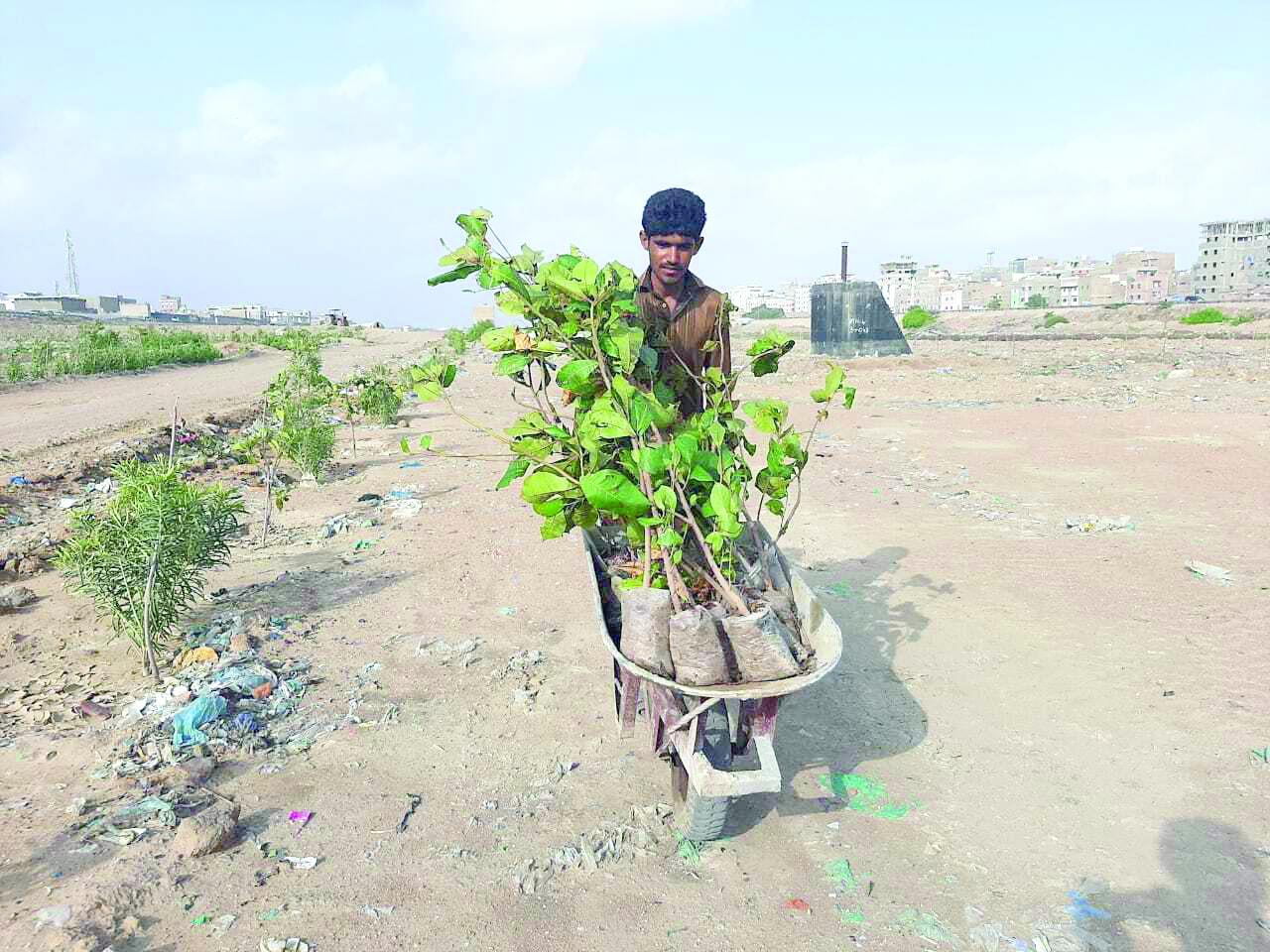
The Lyari river — from ‘nullah’ to woodland?
Trees spring up, but garbage dumping, encroachments still pose hurdle to urban forest project
KARACHI:
The Karachi Urban Forest project's initiative to turn the filth-ridden Lyari River into a breath of fresh air amid the concrete jungle has started bearing fruit, despite authorities allegedly continuing to treat the river as a garbage-dumping spot.
"There used to be garbage heaps everywhere here," recalled Karachi Social Forestry conservator Abdul Jabbar Kazi, talking to The Express Tribune. "But now it's gradually turning into a lush green forest."
In February this year, various species of plants and trees were planted alongside the river, over a 1.8-kilometre-long tract starting from the Mauripur Bridge, in a bid to convert the area -nothing more than a nullah at the time - into a green belt.
The seeds sown back then showed quick results with plants growing rapidly on the site, encouraging foresters and gardeners to turn the entire riverside track into an urban jungle over the next two years.
As a result, several species of neem, shisham (Indian rosewood), tropical almond, cheeku (sapodilla), mullberry, jamun (java plum), pecan, gulmohar (royal poinciana) and other indigenous trees have been planted along the Lyari river.
The forester deployed at the site, Inayatullah Panhwar, estimated that at least 16,000 trees have been planted on the river's banks over the past few months, and according to Kazi, some of these species, such as shisham and bhan, have been introduced for the first time in the port city. "Both these species have grown amazingly well."
The change has not gone unnoticed.
Forest and wildlife secretary Abdul Rahim Soomro had his hopes high for the urban forest. "You will see a drastically different picture here within a year," he claimed, adding that it was expected that people from across the city would visit the river following the transformation.
Care has also been taken to plant trees in such a way that sufficient space is left for cricket and football enthusiasts from nearby areas, who regularly visit the area, to play in well-planned sports grounds.
The project is reportedly considered as one of the largest initiatives launched with regards to urban forestry in the world and aims to plant approximately one million trees and other plants by the river.
Tending to the trees
According to Panhwar, eight gardeners have been assigned to look after the plantation. Fruit-bearing trees are watered using fresh water supplied by the local government department and the rest gulp up drain water.
Before anything is planted, gardeners remove at least three feet of waste, replacing it with fertile soil from the city's suburbs. "Otherwise, the solid waste, garbage and plastic buried under the soil would not let the trees grow well," explained Kazi.
It is such difficulties that pose a challenge in the way of turning the river bank into an urban forest, according to him. However, he is optimistic that the initiative's first phase will be completed by the end of July.

The hindrance
Kazi's optimism, perhaps, is a result of Pakistan Peoples party chairperson Bilawal Bhutto Zardari taking a keen interest in the project, inaugurating it and even visiting the river twice since February.
However, reports have surfaced of various bodies and persons continuing to dump garbage there.
An official posted at the site, who asked not to be named, told The Express Tribune that it wasn't just private contractors - officials from the South and West districts, too, had been dumping garbage in and along the river.
"The garbage then has to be removed before we can plant trees," he said, adding that though they had been requested multiple times to stop the "illegal activity," it had made no difference.
Another barrier in the way of the project is the encroachment by gypsies, cattle markets and transporters who park heavy vehicles along the river in large numbers, making it difficult to plant trees.
"Moreover, children from nearby areas use the water we store for plants, posing another hurdle," a gardener pointed out, saying that the local police had been apprised of the predicament multiple times. "This forest belongs to all residents of this locality. They have to own it," he added.
Nevertheless, like Kazi, he refuses to let go of hope and, witnessing the rapid growth of the trees, looks forward to seeing the forest emerge as a recreational spot for Karachi's citizens.
Published in The Express Tribune, July 20th, 2020.















COMMENTS
Comments are moderated and generally will be posted if they are on-topic and not abusive.
For more information, please see our Comments FAQ